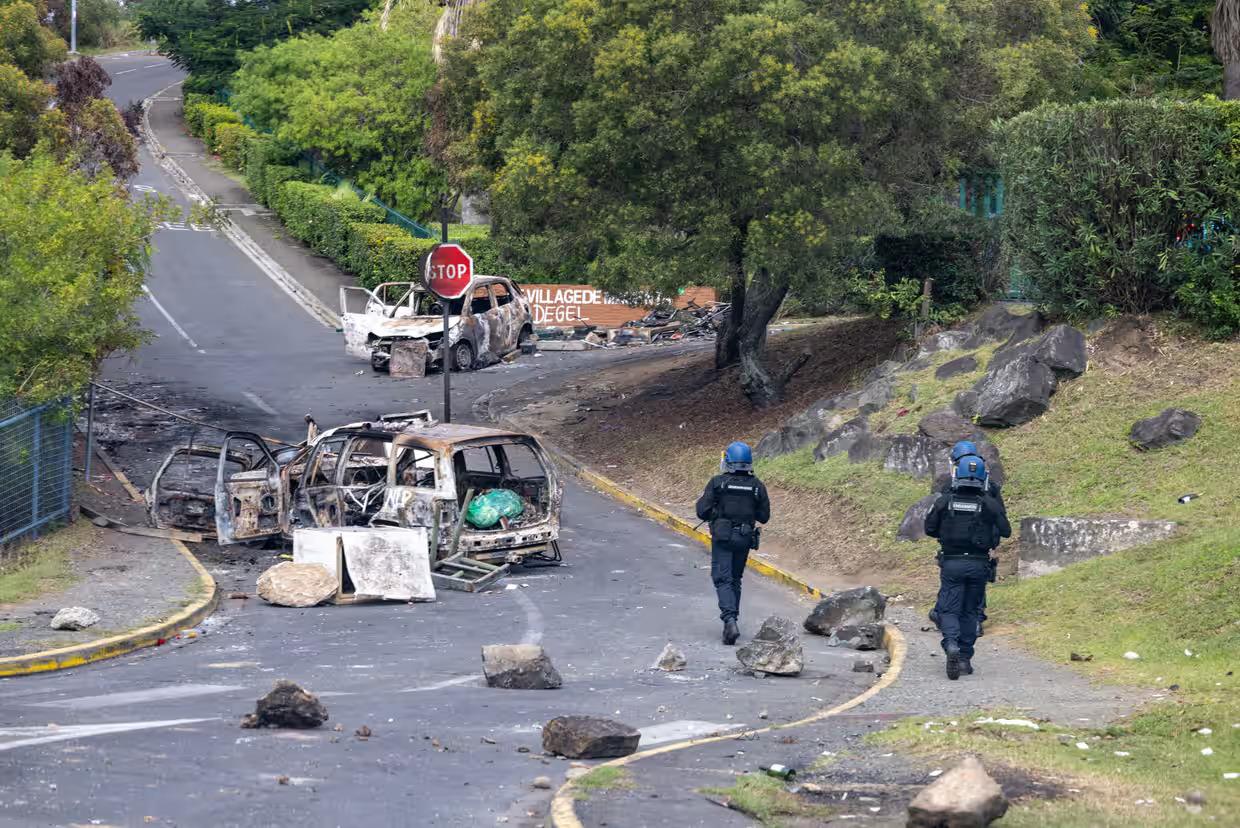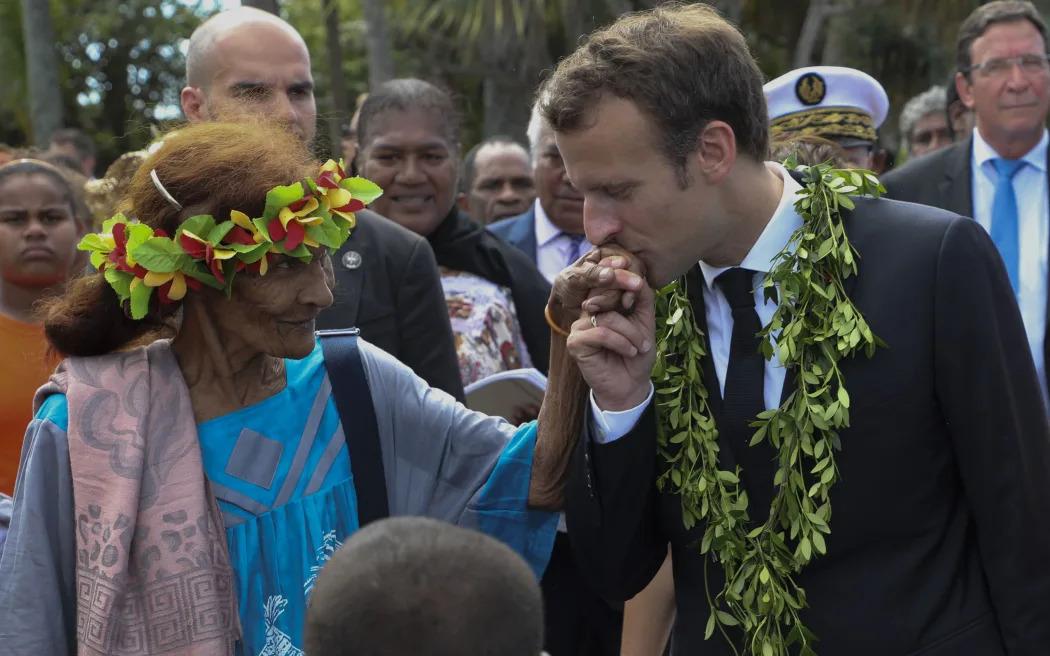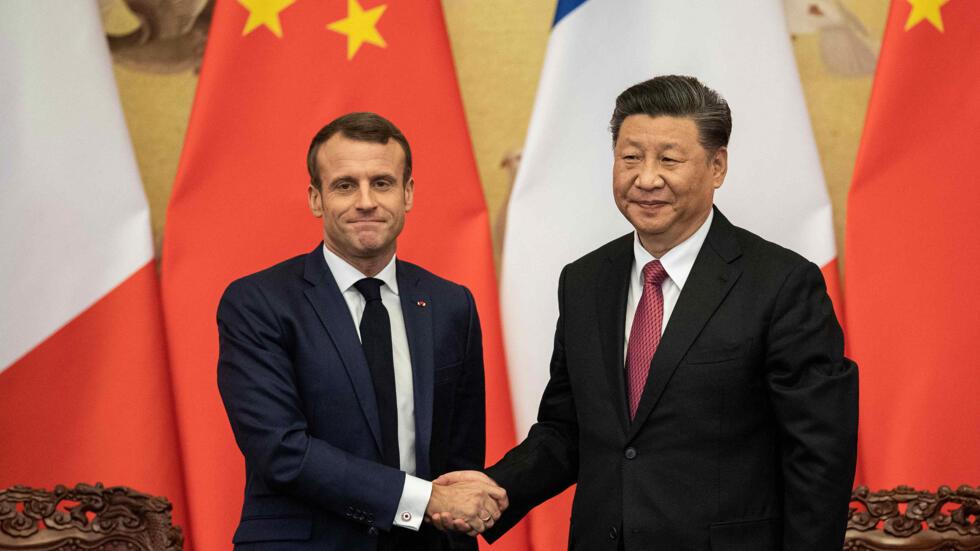Macron's Indo-Pacific strategy faces crucial test amid New Caledonia unrest Wooing New Caledonians to stay under French rule
France's reluctance to grant full independence to New Caledonia, despite being one of Europe's oldest democracies, stems from a complex interplay of historical, political, economic, and geopolitical factors. New Caledonia, a French overseas territory in the South Pacific, has been under French control since 1853. The archipelago, home to nearly 300,000 people, has a population composed of 41% Melanesian Kanaks and 24% Europeans, primarily of French descent.
The Noumea Accord of 1998 was a significant turning point, offering a path towards greater autonomy and the possibility of independence. This agreement restricted voting in provincial elections to those residing in New Caledonia before 1998 and their descendants, aiming to ensure political representation for the indigenous Kanak population. However, three referendums held under the accord saw independence rejected, although the legitimacy of the most recent vote in 2021 was questioned due to a boycott by pro-independence groups during the Covid-19 pandemic.
French President Emmanuel Macron's visit to New Caledonia sparked further unrest among the indigenous Kanak population, who are demanding greater autonomy and addressing deep-seated inequalities. The protests, ignited by proposed electoral reforms, have seen widespread violence, looting, and clashes, resulting in multiple deaths and injuries.

Local Kanaks are expressing frustration over their fate being decided by non-residents. Macron's brief visit, intended to quell the unrest, was marked by promises to review the reforms but failed to satisfy the protesters, who are demanding the withdrawal of the changes.
Activists argue that the Kanak voice is being ignored and accuse France of using "democracy" to mask its policy shortcomings. Economic disparities are stark, with indigenous Kanaks facing significantly higher poverty rates and lower educational attainment compared to non-Kanaks.
Despite Macron's acknowledgment of widening inequalities and his pledge to maintain order, his visit did little to ease tensions. Pro-independence activists stress the need for a political solution, criticizing the heavy presence of French security forces.

Kanaks continue to push for recognition and independence, with activists emphasizing their demand for fair wealth redistribution and respect for their identity. The sentiment among protesters is clear: without independence, they foresee no security or peace in New Caledonia.
Strategic & economic interests
In 2018, a year after becoming France's president, Emmanuel Macron visited New Caledonia to unveil a new Indo-Pacific strategy aimed at countering China's regional ambitions. At that point, Macron emphasized New Caledonia's crucial role in this plan, stating, "the Indo-Pacific is at the heart of the French project," according to Reuters.
France's determination to maintain its hold on New Caledonia is closely tied to the island's strategic and economic significance. New Caledonia possesses an estimated 25% of the world’s nickel resources, making it the third-largest global producer. Nickel is vital for both traditional industries, such as stainless steel production, and emerging technologies, including lithium-ion batteries used in electric vehicles (EVs). The stability and control of New Caledonia are therefore crucial for maintaining supply chains and supporting global energy transitions.
Moreover, the island's geopolitical location in the Indo-Pacific region adds another layer of strategic importance. President Emmanuel Macron's government has emphasized expanding French influence in this area, where global powers like China and the United States are vying for dominance. By retaining control over New Caledonia, France ensures a strategic foothold that supports its broader geopolitical objectives, including countering Chinese influence and maintaining a presence in a region critical for global maritime routes and security.

Universal independence & democratic values
France’s approach to New Caledonia raises questions about its commitment to universal principles of independence and self-determination. As a prominent advocate for democracy and human rights, France’s reluctance to allow New Caledonia full independence seems contradictory. Critics argue that this stance undermines the democratic values France claims to uphold, highlighting a potential double standard in its foreign policy.
The constitutional amendment permitting recent arrivals to vote in provincial elections, perceived as diluting Kanak representation, has exacerbated tensions. Indigenous leaders and pro-independence activists view this as a direct threat to their political and cultural identity, sparking deadly riots and civil unrest. France’s heavy-handed response, including imposing curfews and shutting down critical infrastructure, has drawn international scrutiny and criticism.
Geopolitical rivalries & economic dependencies
The geopolitical rivalry between global powers further complicates the situation. China’s aggressive expansion in the Pacific, through investments in infrastructure and natural resources, has heightened the strategic importance of regions like New Caledonia. France's continued presence on the island is partly driven by the need to counterbalance China’s growing influence and maintain its own strategic and economic interests in the region.
Economically, New Caledonia’s nickel industry is vital not only to France but also to global markets. The island's two major nickel-processing facilities contribute significantly to the global supply of this critical mineral. Any disruption in production due to political instability can have far-reaching consequences, affecting industries worldwide and driving up prices. This economic dependency underscores France's reluctance to relinquish control, as stability in New Caledonia directly impacts global nickel supply and, by extension, the broader economy.
Macron's Indo-Pacific strategy faces test amid unrest in New Caledonia
Six years later, Macron's strategy is under severe strain following deadly unrest on the island and Macron had, in response, to dispatch 3,000 security officers, describing the situation as "an unprecedented insurrection".

Although he postponed ratifying the voting reform to seek a settlement, he maintained that the measure has "democratic legitimacy" and reinforced the results of a disputed 2021 referendum where a majority voted to remain French, dampening hopes for independence.
Experts suggest Macron's firm stance highlights his commitment to maintaining France's influence in a geopolitically significant region contested by the US and China. New Caledonia, part of a "string of pearls" of French territories across the Indo-Pacific, enhances France's global power status and contributes to its claim of having the world's second-largest exclusive economic zone due to its maritime control around these islands.
Conclusion
France’s reluctance to grant independence to New Caledonia is rooted in a web of historical ties, strategic interests, economic dependencies, and geopolitical rivalries. While the situation challenges France's democratic ideals, it also underscores the complex realities of modern statecraft, where national interests often intersect with, and sometimes override, universal principles of self-determination and independence.
Navigating the path forward requires a delicate balance between respecting the rights and aspirations of the Kanak people and addressing the strategic and economic imperatives that drive France's policies. Macron’s invitation for talks in Paris indicates a willingness to seek a negotiated settlement, though the imposition of a June deadline for reaching an agreement reflects the urgency and high stakes involved.
For France to reconcile its democratic values with its actions in New Caledonia, it must genuinely engage with indigenous leaders, address their concerns about representation and identity, and explore pathways to a more autonomous or independent future that respects the will of the local population. Only through such inclusive and respectful dialogue can a sustainable and just resolution be achieved.








